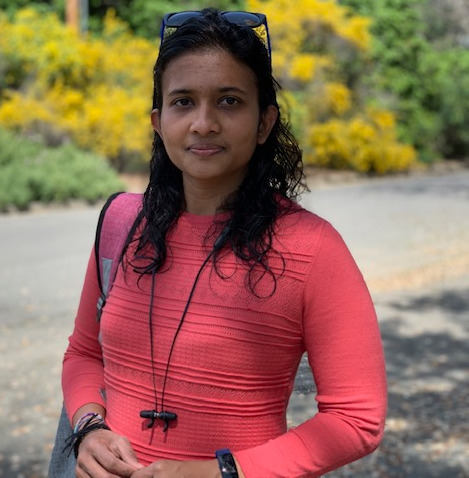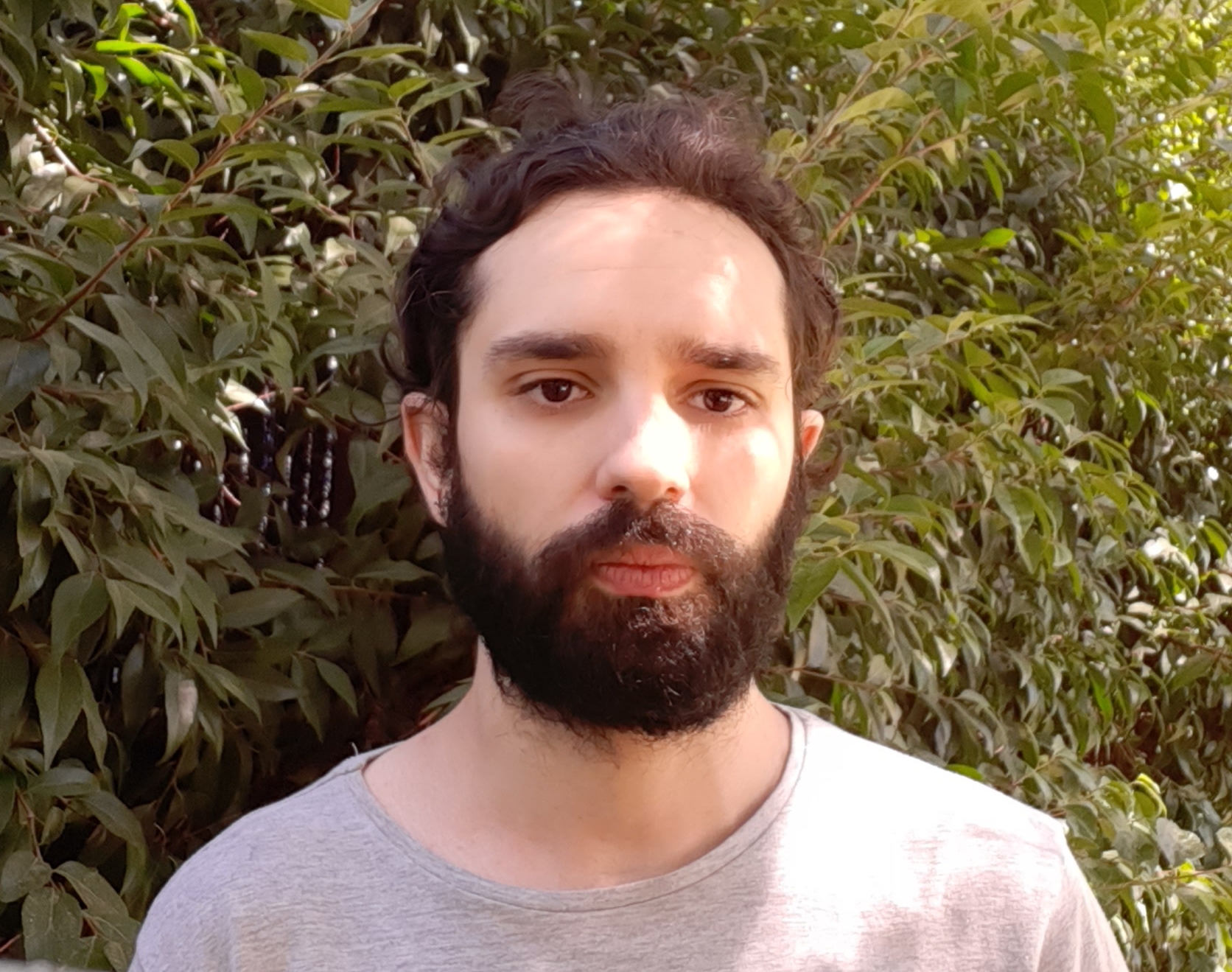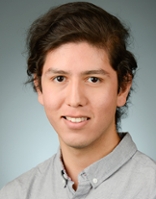Postdocs
Current Postdocs
 Dr. Ruwini Rupasinghe (BVSc, MPhil, MPVM) is a post-doctoral research at the Center for Animal Disease Modeling and Surveillance, University of California, Davis. She obtained her PhD from UC Davis, her Bachelor of Veterinary Science (BVSc) and MPhil degree from University of Peradeniya, Sri Lanka. She participated in “One Health – Intensive Field Course” conducted by UC Davis in 2015 which persuaded her to focus her studies on disease dynamics especially at the human/animal/environment interphase. She completed her MPVM degree at UC Davis in 2017 and joined the CADMS for her Ph.D. degree with a strong interest in One Health, molecular and spatial epidemiology. She is currently involved in developing an epidemiological surveillance platform for Antimicrobial Resistance (AMR) of swine bacterial pathogens and will further explore emergence, evolution and transmission dynamics of AMR at the animal/environmental/human interface.
Dr. Ruwini Rupasinghe (BVSc, MPhil, MPVM) is a post-doctoral research at the Center for Animal Disease Modeling and Surveillance, University of California, Davis. She obtained her PhD from UC Davis, her Bachelor of Veterinary Science (BVSc) and MPhil degree from University of Peradeniya, Sri Lanka. She participated in “One Health – Intensive Field Course” conducted by UC Davis in 2015 which persuaded her to focus her studies on disease dynamics especially at the human/animal/environment interphase. She completed her MPVM degree at UC Davis in 2017 and joined the CADMS for her Ph.D. degree with a strong interest in One Health, molecular and spatial epidemiology. She is currently involved in developing an epidemiological surveillance platform for Antimicrobial Resistance (AMR) of swine bacterial pathogens and will further explore emergence, evolution and transmission dynamics of AMR at the animal/environmental/human interface.
Completed Postdocs
 Sara Amirpour Haredasht was a postdoc for CADMS from 2016 - 2018. She is interested in model-based monitoring/prediction of infection disease dynamics. She aims to combine mechanistic process knowledge with measured information (e.g. cases of infections, environmental and time variable parameters related to the spread of the disease) which makes the resulted model understandable from a biological/ socio-economical/ ecological point of view, but at the same time allows the model to use real-time measured information (temporal as well as regional) in order to predict the evolution and dynamics of infectious diseases. Such model predictions can be used as a basis for, among other things, monitoring and early-warning systems for disease outbreaks. Primarily, she has been involved in development of temporal and spatial models based on climate and vegetation data to predict outbreaks of emerging viral zoonotic diseases in Europe.
Sara Amirpour Haredasht was a postdoc for CADMS from 2016 - 2018. She is interested in model-based monitoring/prediction of infection disease dynamics. She aims to combine mechanistic process knowledge with measured information (e.g. cases of infections, environmental and time variable parameters related to the spread of the disease) which makes the resulted model understandable from a biological/ socio-economical/ ecological point of view, but at the same time allows the model to use real-time measured information (temporal as well as regional) in order to predict the evolution and dynamics of infectious diseases. Such model predictions can be used as a basis for, among other things, monitoring and early-warning systems for disease outbreaks. Primarily, she has been involved in development of temporal and spatial models based on climate and vegetation data to predict outbreaks of emerging viral zoonotic diseases in Europe.
 Dr. José Manuel Díaz Cao (DVM, PhD) was a postdoc for CADMS from 2020 - 2021. He is interested in the epidemiology of infectious diseases. He has been working on risk factor analysis and the characterization and modeling of the ways in which diseases are transmitted and maintained in animal populations. He obtained his doctorate at the University of Santiago de Compostela, Spain, and his dissertation focused on reproductive pathogens in domestic ruminants, the analysis of the determinants of exposure and outbreaks, the detection of spatio-temporal trends and how to take advantage of the information generated on farms to anticipate and mitigate risks. He has extended this work to a wide number of pathogens in different animal species, including livestock, wildlife and zoonotic diseases. He also is experienced in the environmental detection of infectious pathogens, laboratory diagnosis and epidemiological and statistical analysis. He is collaborating with the department in the application and development of new methods and epidemiological monitoring systems that allow the information generated in livestock and animal health to be used to inform early on the risks on animal health in order to improve and optimize control, biosecurity and surveillance of infectious pathogens.
Dr. José Manuel Díaz Cao (DVM, PhD) was a postdoc for CADMS from 2020 - 2021. He is interested in the epidemiology of infectious diseases. He has been working on risk factor analysis and the characterization and modeling of the ways in which diseases are transmitted and maintained in animal populations. He obtained his doctorate at the University of Santiago de Compostela, Spain, and his dissertation focused on reproductive pathogens in domestic ruminants, the analysis of the determinants of exposure and outbreaks, the detection of spatio-temporal trends and how to take advantage of the information generated on farms to anticipate and mitigate risks. He has extended this work to a wide number of pathogens in different animal species, including livestock, wildlife and zoonotic diseases. He also is experienced in the environmental detection of infectious pathogens, laboratory diagnosis and epidemiological and statistical analysis. He is collaborating with the department in the application and development of new methods and epidemiological monitoring systems that allow the information generated in livestock and animal health to be used to inform early on the risks on animal health in order to improve and optimize control, biosecurity and surveillance of infectious pathogens.
 Jose Pablo Gomez-Vazquez (DVM, MPVM, PHD) was a postdoctoral researcher at CADMS (2022-2023). His interest is in the application of spatiotemporal modeling to study infectious disease dynamics. Pablo has been integrating methodologies from complex systems such as network analysis and agent based models to study the impact of transboundary infectious diseases in animal production systems. He also worked with some COVID related projects including spatiotemporal analysis of COVID 19 in Mexico City and modeling the effect of testing and vaccination to reduce the impact of COVID 19 in nursing homes. Pablo is also interested in data visualization and the development of open access platforms that facilitates science communication and data analysis. Currently he working with veterinary services in different countries in the development of tools that can be used to asses the risk of introduction and dissemination livestock diseases, and the impact of different control strategies.
Jose Pablo Gomez-Vazquez (DVM, MPVM, PHD) was a postdoctoral researcher at CADMS (2022-2023). His interest is in the application of spatiotemporal modeling to study infectious disease dynamics. Pablo has been integrating methodologies from complex systems such as network analysis and agent based models to study the impact of transboundary infectious diseases in animal production systems. He also worked with some COVID related projects including spatiotemporal analysis of COVID 19 in Mexico City and modeling the effect of testing and vaccination to reduce the impact of COVID 19 in nursing homes. Pablo is also interested in data visualization and the development of open access platforms that facilitates science communication and data analysis. Currently he working with veterinary services in different countries in the development of tools that can be used to asses the risk of introduction and dissemination livestock diseases, and the impact of different control strategies.
Dr. Carlos Gonzalez Crespo (PhD) was a postdoctoral researcher at CADMS (2021-2023). His interest is in the epidemiology of infectious diseases and their impact on ecosystems. He has been working as wildlife biologist with several years of conservation background in wildlife rescue centers and conservation programs. With the aim of helping wildlife by decreasing their threats from a higher level of decision, he decided to study in the Autonomous University of Barcelona, Spain, for a master’s degree in Biodiversity Management where he continued with a PhD in Biodiversity about the management and epidemiology of urban wildlife, where he discovered his passion for modeling. His dissertation focused on the use of models as a tool to assess the cost-effectiveness of management strategies, as well as to evaluate the spread, transmission risks, and epidemiological implications for public health of pathogens carried by urban wild boars (Sus scrofa) in the city of Barcelona, Spain. He is working in the department in the application and development of Agent Based Models to evaluate interactions, conflicts, and disease transmission potential at the wildlife-domestic-human interface, especially for African swine fever.

Dr. Kyuyoung Lee (DVM, MPVM, PhD) is a post-doctoral research at the Center for Animal Disease Modeling and Surveillance, University of California, Davis. He obtained his degree of Veterinary Medicine degree at the Chungnam National University in South Korea (2010) and Master of Preventive Veterinary Medicine (MPVM) and PhD in Epidemiology degrees at the University of California, Davis at 2016 and 2020, respectively. He worked as a public veterinarian and a veterinary epidemiology researcher in the governmental veterinary authority in South Korea. He is interested in the development and the application of advanced epidemiological methods to challenge governmental and global issues in animal health. His academic goal led him to engaging in the research to unravel the complexity of live pig shipments network and estimate the risk of Porcine reproductive and respiratory syndrome virus (PRRSV) transmission among pig production sites using social network analysis supported by Boehringer Ingelheim PRRS Research Award 2015. He is interested in advanced epidemiological methods for infectious diseases and pursuing to expand the methods by incorporating phylogenetics of pathogens and economic analysis to measure the benefit of preventive measures for infectious diseases.

Kathleen O'Hara (DVM, MPVM, PhD, DAVCPM (Epidemiology)) is a post-doctoral scholar interested in infectious disease epidemiology and strategies to contain and mitigate transboundary animal diseases. She graduated from Cornell University's College of Veterinary Medicine, and completed a small animal rotating internship and practiced small animal emergency medicine in the San Francisco bay area before returning to the University of California, Davis where she completed her Master of Preventive Veterinary Medicine (MPVM) and PhD in epidemiology with CADMS. Her dissertation studies focused on African swine fever (ASF), and used descriptive statistics, components analysis, social network analysis, and mathematical and agent-based modeling to describe the backyard predominant pig sector in the Republic of North Macedonia. Kathleen demonstrated the value of these approaches in this sector, identifying risk factors and areas at high risk for disease introduction, as well as informing risk-based targeting of surveillance, enhanced biosecurity and response efforts. Kathleen continues to apply and expand her expertise in ASF epidemiology through her involvement with an internationally collaborative program exploring the evolution of ASF in southern Africa. She is currently developing a niche-based model of warthog distribution in South Africa and Mozambique, to better predict where wild-domestic interfaces may increase risk for ASF spillover in this region. Additionally, she is engaged with work updating risk assessments for ASF introduction, and exploring the potential role of Ornithodoros spp. in ASF transmission, within the US. Kathleen has extensive experience in questionnaire development and is interested in the expanding use of participatory approaches and public-private partnerships to build engagement with backyard and rural producers. Kathleen is also interested in disaster management, preparedness and response. She has been involved in multiple studies exploring the impact of California wildfires on livestock producers in the state.
